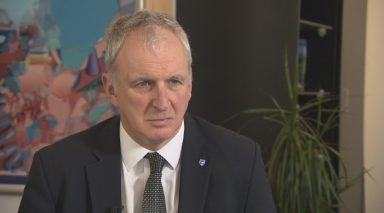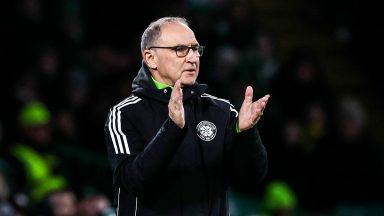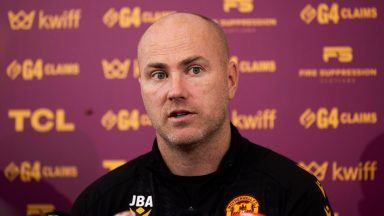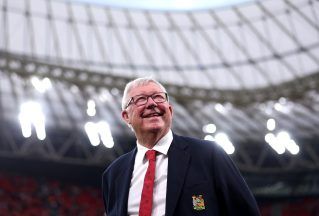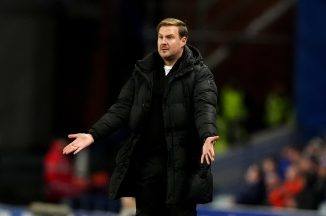Play-offs once again stand between Scotland and a major tournament.
If we beat Ukraine on Wednesday night, we’ll then have to get past Wales to reach a first World Cup since 1998.
This isn’t our first crack at qualification play-offs – here’s how we’ve fared when the stakes are sky-high.
World Cup 1962: Late drama, and what might have been
Qualification was a little bit different back in the early 1960s, with the format and rules we have grown used to still just a twinkle in a UEFA secretary’s eye.
Seven of the ten European qualifying groups for Chile ’62 had three teams playing in mini-leagues. One group had five teams playing in a traditional knockout format. Two ‘groups’ were just head-to-heads to go to organised play-offs against teams from other continents.
Ethiopia were in UEFA qualifying, apparently because they chose to be. It was a different time.
Scotland found themselves up against Czechoslovakia and Republic of Ireland with only one place at the finals on offer.
Ireland were beaten in all four of their games, the Scots and Czechs beat each other and a look at the final table showed both teams level on points but with Czechoslovakia having run up a far superior goal difference. Goal difference wasn’t in the rules to separate tied teams so a one-off match, Scotland’s first play-off, was set up.
Brussels was chosen as the neutral venue and two sides with their eye on the finals went head to head.
Ian St John gave Scotland a first-half lead, but Jiri Hledik equalised in the second half. St John scored again to immediately restore the advantage and Scotland looked destined for Chile.
A late, late goal from the Czechs, which Scotland players didn’t believe had crossed the line, forced extra time.
Tomas Pospichal scored in the fifth minute and Andrej Kvašňák netted another six minutes later. Scotland had no answer and returned home with their dreams in tatters. Czechoslovakia went on to the World Cup, and all the way to the final, losing to 3-1 to Brazil.
World Cup 1986: Joy on the park, but a nation mourns

Scotland qualified for the World Cups of 1974, 1978 and 1982, but saw their streak threatened during the next set of qualifiers.
Back-to-back defeats against Spain and Wales put qualification in real doubt, but when a 1-1 draw in Cardiff sealed a play-off place, it was overshadowed by the death of iconic manager Jock Stein.
With players and staff stunned by Stein’s sudden passing, the Scottish FA turned to assistant manager Alex Ferguson, who had transformed Aberdeen into a powerhouse. In his autobiography Managing My Life, Ferguson said taking Scotland to the World Cup was “the first obligation to Stein’s memory”.
Standing in their path was an Australia team who had finished ahead of Israel, New Zealand and Chinese Taipei. Though they had scored for fun against the relative minnows in their own section, they were underdogs in the play-off and played to frustrate in the first leg at Hampden.
David Cooper’s well-struck free-kick gave Scotland the lead before Frank McAvennie added the second, lifting a shot over Australia keeper Terry Greedy for a debut international goal.
A 2-0 advantage made the long trip to the return leg in Melbourne more comfortable than it might have been, but Australia were also looking forward to a match on home turf.
At Olympic Park, Scotland couldn’t create the chances they needed to put the tie to bed, while Jim Leighton was the busier of the two goalkeepers by far. Neither side could find the net, though, and Scotland marched on to Mexico.
Euro 2000: Agony against the Auld Enemy

After World Cup ’98 there was no reason for anyone in the Scotland set-up to imagine the team was just beginning a long, long exile from major finals. The national team had reached more major tournaments than they had missed over the previous 20 years.
In a qualification group that lacked glamour, Craig Brown’s side finished comfortably ahead of Faroe Islands, Estonia, Lithuania and Bosnia and Herzegovina. Way ahead of the rest, though, was an imperious Czech Republic side, who won all their group games thanks to a talented team that included the likes of Patrik Berger, Pavel Nedved and Jan Koller.
Second place for Scotland meant the play-offs and after a random draw saw the team pitted against England, while most of the world planned millennium celebrations, the Tartan Army were dreaming of the party to end all parties if they could upset the odds.
England’s line-up for the first leg at Hampden included the steel of Tony Adams and Paul Ince, the set-piece delivery of David Beckham and a strike partnership of Alan Shearer and Michael Owen to keep defenders busy. The headlines all went to Paul Scholes, though, as the Manchester United star took the tie by the scruff of the neck.
After 21 minutes he ghosted into space between Scotland’s defenders to take a high pass on his chest and finish neatly past Neil Sullivan.
Just before half time the midfield maestro leapt up to power in a header from a Beckham free-kick.
That left Scotland with an uphill task at Wembley, hoping for a collapse from England in front of their own fans.
Scholes had an early chance to put the tie to bed, but hit the side netting. The hosts were having an off day, increasing faint hopes that the upset could be on the cards.
The travelling support started to believe as the game ticked towards half-time. Neil McCann found himself with space on the left and delivered a terrific cross for Don Hutchison to power a header into the net.
England couldn’t make any inroads into the Scotland defence and the visitors were giving everything to level the tie. It almost came when a John Collins corner was met by Christian Dailly’s header, but David Seaman’s point-blank save denied him.
The goal never came and England progressed to the finals, but the Wembley win remains a memorable one for the Tartan Army.
“We deserved more than one goal and we played better than England did on Saturday,” Brown said after the game. “I’ve never lost two in a row and I wasn’t going to against England.”
Euro 2004: McFadden gives hope, Netherlands teach lesson

The Berti Vogts era is generally remembered as one of unrelenting misery but, for a while, there was hope.
The manager’s first qualification campaign saw Scotland up against his native Germany, and there was no surprise to see the favourites top the group. Second place, ahead of Iceland, Lithuania and Faroe Islands, gave the Scots a last chance to reach the finals in Portugal if they could only win a two-legged tie against another group runner-up.
The draw put Netherlands in Scotland’s path and though clear underdogs, Vogts and his players took to the turf at Hampden for the first leg with optimism they could rattle Dick Advocaat’s stars.
A lot rested on the mercurial talents of James McFadden and the forward delivered something special on the day.
After his corner was headed back out to the byline, McFadden took a touch, exchanged passes with Darren Fletcher and then carried the ball further into the box before hitting a shot that looped past Edwin van der Sar. The Hampden crowd erupted, and Scotland had a 1-0 advantage to take into the second leg.
If the Dutch fans were wondering how a team with players like Edgar Davids, Ruud van Nistelrooy and Marc Overmars could find themselves on the brink of failure once again, they were treated to a demonstration of what Netherlands were capable of in the return fixture.
Scotland might have hoped to keep it tight and nick something or frustrate their talented opponents in the Amsterdam Arena. No such luck.
Advocaat brought Wesley Sneijder and Rafael van der Vaart into the side and an attacking masterclass saw the Dutch run riot. Within 15 minutes Sneijder had put his side ahead, Scotland were 3-0 down within 37 minutes and Van Nistelrooy bagged a hat-trick in a comprehensive win.
It finished 6-0 on the day, 6-1 on aggregate and once again the play-offs had ended with disappointment.
Euro 2020: Tension in Serbia and the end of a long, long wait

UEFA’s decision to introduce the Nations League provided an additional benefit that Scotland made the most of. Group winners secured a play-off place they could utilise if traditional qualification didn’t go their way.
With Hampden among the host venues for the finals, it was even more important that Scotland made the cut.
Having finished behind Belgium and Russia in a difficult group, the second chance card couldn’t be wasted. The draw brought a semi-final match against Israel, with the winner facing Serbia or Norway in the final.
Covid forced the indefinite postponement of the original tie but after the world started to get back to normal, the crucial matches were ready to take centre stage.
An Israel side that had grown to be very familiar opponents over a series of games went toe-to-toe with Scotland at Hampden. The previous games had been close and this one was no different. Neither side could find the net over 120 minutes.
Penalties were needed and Israel star Eran Zahavi missed their first spot-kick. Scotland were ruthless with their five attempts, Kenny McLean tucking away the final penalty to set up the final against Serbia.
It all came down to one game. Steve Clarke’s side travelled to Belgrade knowing that the right performance could end a 23-year wait to play at a major finals.
Serbia were the higher-ranked team and favourites to go through, and it was no surprise when they dominated the early stages.
Scotland soon gained a foothold, with John McGinn and Andy Robertson both having chances, but it was Ryan Christie who put the visitors in front. Callum McGregor picked him out and the attacker collected with his back to goal, shifted left and then hit a smart shot back across the goalkeeper that went in off the post.
With an advantage to defend, Scotland worked hard to keep Serbia at bay and the nation was counting down the minutes to full-time. In the final moments there was time for one last chance and Serbia took it. Luka Jovic got free from Scott McTominay at a corner and his header found the back of the net.
After playing extra time four days earlier, the sides took it down to the wire again. No scoring after another half-hour’s play meant penalties with a place at Euro 2020 at stake.
The quality of the spot-kicks was high. Leigh Griffiths nailed the first. Dusan Tadic found the same spot with Serbia’s first.
McGregor coolly scored his kick, and though David Marshall got a hand to Jovic’s firmly hit shot, he couldn’t keep it out.
Scott McTominay stepped up and slammed a low shot into the bottom corner. Nemanja Gudelj sent Marshall the wrong way.
Oli McBurnie stepped up with the pressure on and found the opposite corner from McTominay. Aleksandar Katai thumped his penalty into the back of the net.
Kenny McLean, who scored the winning penalty in the semi-final, made no mistake meaning Serbia needed to score their final kick. Mitrovic took the responsibility and went right. Marshall dived, saved and Scotland reached the European Championships.
Follow STV News on WhatsApp
Scan the QR code on your mobile device for all the latest news from around the country


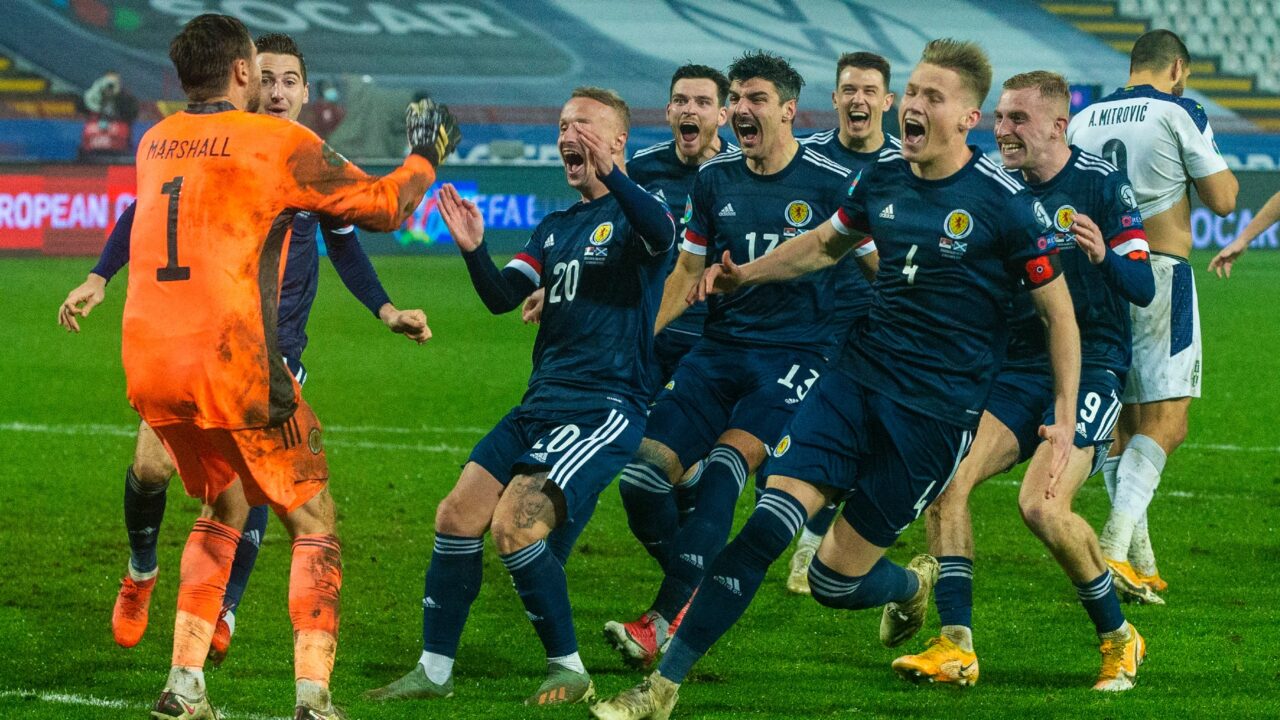 SNS Group
SNS Group





